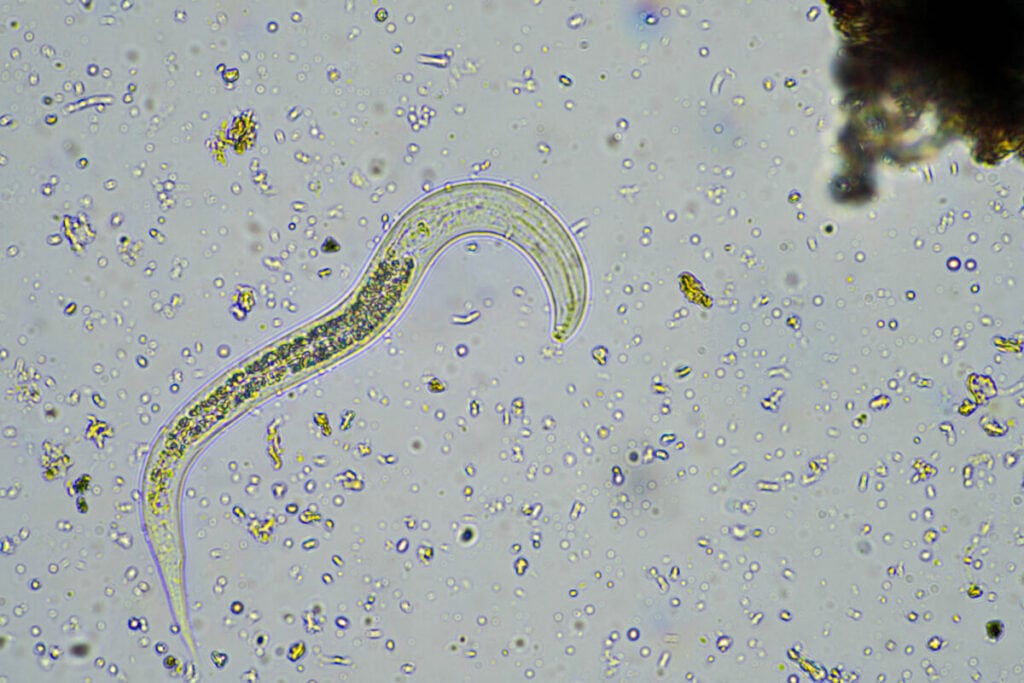Nematodes are microscopic worms that can cause serious damage to your vegetable plants if left unchecked.
In this blog post, we’ll discuss how to identify and combat nematodes on your vegetable plants.
What are nematodes?
Nematodes are microscopic, thread-like worms that can cause significant damage to vegetable plants. They feed on the plant’s roots, stem and leaves, leading to stunted growth, wilting and discoloration of the foliage.
Sometimes, they can even lead to death of the plant. Nematodes reproduce quickly, so a small infestation can quickly become unmanageable if left untreated.
What damage do nematodes cause on plants?
Nematodes cause a wide range of damage to plants, depending on the type and severity of the infestation. Most commonly, they will feed on the plant roots, causing them to become weak or stunted.
This can lead to poor nutrient and water absorption by the plant, resulting in wilting or discoloration of foliage. In extreme cases, nematode infestations can lead to the death of the plant because of severe root damage.
In addition, some types of nematodes may also transmit viruses from one plant to another, further damaging their health.
How to identify nematodes on plants

Identifying nematodes on your vegetable plants can be tricky, as they are microscopic and often difficult to spot. The main way to tell if you have an infestation is by examining the plant for signs of damage.
Look for wilting or discolored foliage, stunted growth, yellowing leaves, and patches of dead tissue on the stems or roots. You may also notice small galls or swellings on the roots caused by nematodes.
If you suspect that you have an infestation of nematodes, take a sample of the affected area and send it to a laboratory for testing. This will help confirm nematodes and determine what type they are.
Read more:
How to get rid of nematodes
Biological control: Introducing predatory nematodes or fungi into the soil can help to reduce the population of harmful species.
Chemical treatments: Chemical treatments, such as fumigants and insecticides, can be used to kill off nematode populations. However, these should only be used as a last resort because of their potential for damaging other organisms in the soil.
Solarization: Solarization uses heat from the sun to kill off nematodes in the soil. Covering an infested area with a clear plastic sheet for several weeks in summer will raise temperatures high enough to eliminate them.
Neem oil: Neem oil can be used to effectively control nematode populations on vegetable plants. It works by disrupting the reproductive cycle of the worms.
How to prevent nematodes on plants
Practice crop rotation: Plant different crops in different areas each year, as this will reduce the population of nematodes that are already present in the soil.
Use resistant varieties: Some varieties of vegetables are more resistant to nematode attack than others. Choose these for planting in areas where nematodes have been found.
Maintain healthy soil: Healthy soil with good drainage and proper nutrients will be less hospitable to nematodes due to competition from beneficial bacteria and fungi.
Host vegetable plants for nematodes
The types of vegetable plants that nematodes attack include tomatoes, potatoes, lettuce, peppers, beans, squash and cucumbers.
Natural predators of nematodes
There are certain types of fungi and bacteria that can get rid of nematodes.
References
- https://nematology.ucr.edu/about/what-are-nematodes
- https://www.agric.wa.gov.au/nematodes/nematodes
- https://ipm.ucanr.edu/PMG/PESTNOTES/pn7489.html

Fact Checked, Written, and Published by Kevin Rodrigues
Kevin is the founder of Gardening Mentor, a website that aims to teach people to grow their own food in a limited space. As a self-taught gardener, Kevin has spent several years growing plants and creating gardening content on the website. He is certified in Home Horticulture and Organic Gardening from Oregon State University. He has a Post Graduate Diploma in Horticulture and Landscape Gardening from Mumbai University.
Read more
